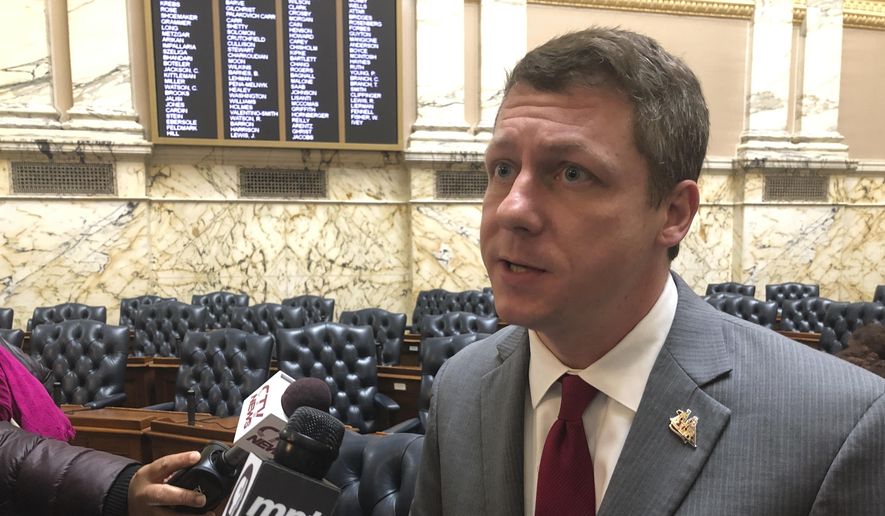The Democratic-controlled Maryland General Assembly is poised to override Republican Gov. Larry Hogan’s veto of a bill that would impose a tax on digital advertising — which would make it the first such legislation to become law in the nation.
The House of Delegates and the Senate, which opened their 2021 legislative session on Wednesday, approved the Digital Advertising Gross Revenues Tax with overwhelming majorities in last year’s pandemic-shortened session.
The measure would impose a 2.5% to 10% on revenue from digital advertising services in Maryland, based on a company’s global annual gross revenue. It would apply to companies that collect at least $100 million in global revenue and at least $1 million in digital ad revenue in Maryland.
If enacted, the tax could generate up to $250 million each year that mostly would be invested in public schools.
Lawmakers approved it along party lines in March, and Mr. Hogan vetoed it in April. It could be revived in the new legislative session.
House Majority Leader Eric Luedtke, Montgomery County Democrat, says the proposed tax is aimed at big tech companies.
“I just don’t see why Facebook and Google, who have tremendous impact on Maryland, should get away without having to pay the taxes that regular Marylanders would pay,” Mr. Luedtke told The Baltimore Sun.
However, nearly 50 businesses have formed the Marylanders for Tax Fairness coalition in an effort to uphold the veto. They argue that local small businesses ultimately will bear the brunt of the costs because corporate giants will raise their advertising fees to pay for the tax increase.
“If legislators use common sense and listen to the thousands of Marylanders pleading with them do the right thing, then the governor’s veto will stand. If they don’t care about their constituents, they will raise taxes in the middle of a pandemic. Pretty simple,” coalition spokesman Doug Mayer said Thursday in an email.
The coalition launched a television advertisement last week on cable networks in the D.C. and Baltimore areas saying the tax is a “bad time for a bad idea.” Additionally, the group’s website shows its petition supporting the veto has received more than 7,000 signatures.
In his veto letter to lawmakers, Mr. Hogan said the measure “would raise taxes and fees on Marylanders at a time when many are already out of work and financially struggling.”
“With our state in the midst of a global pandemic and economic crash, and just beginning on our road to recovery, it would be unconscionable to raise taxes and fees now. To do so would further add to the very heavy burden that our citizens are already facing,” the governor said.
State Attorney General Brian E. Frosh, a Democrat, wrote a letter to Mr. Hogan in April stating that the measure could run into legal trouble as there is “some risk” a court may find certain “provisions are not clearly unconstitutional.”
Other states that have attempted to implement similar measures have run into constitutional roadblocks. According to Forbes, the bill may violate the foreign commerce clause against enforcing the tax on international businesses, as well as First Amendment guarantees against targeting industry-specific media.
It is not clear whether Maryland legislators are planning to vote again in an attempt to override the veto, but it will likely run into some legal hiccups if it is pushed through.
• Emily Zantow can be reached at ezantow@washingtontimes.com.




Please read our comment policy before commenting.